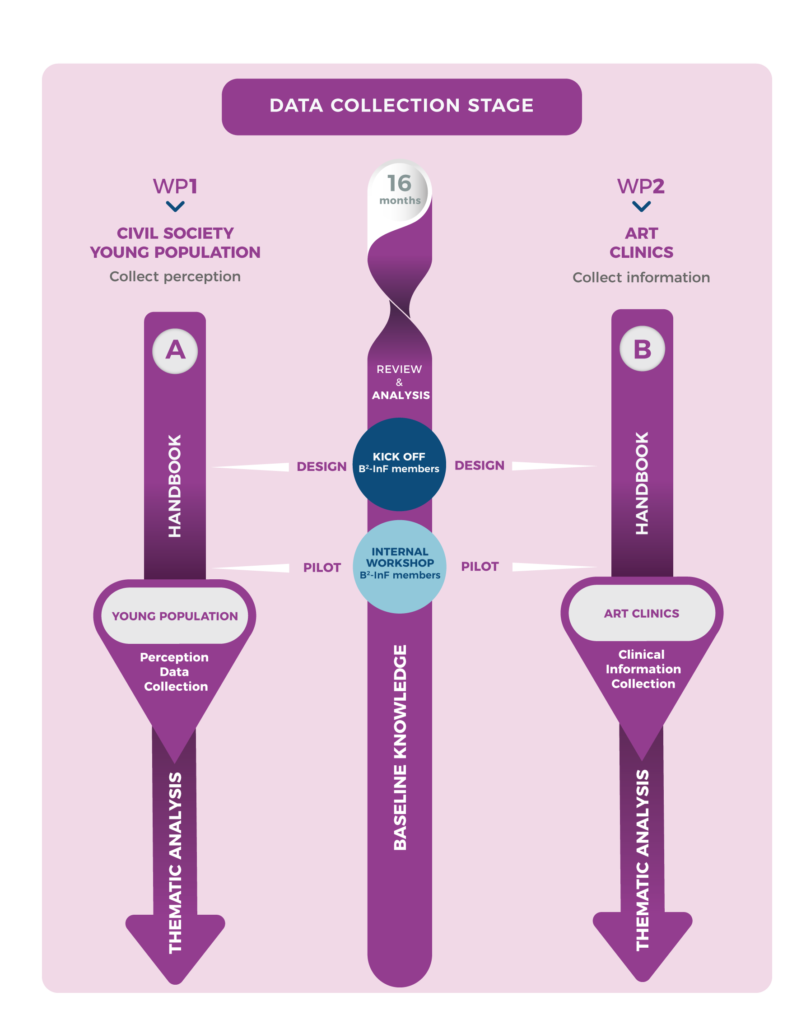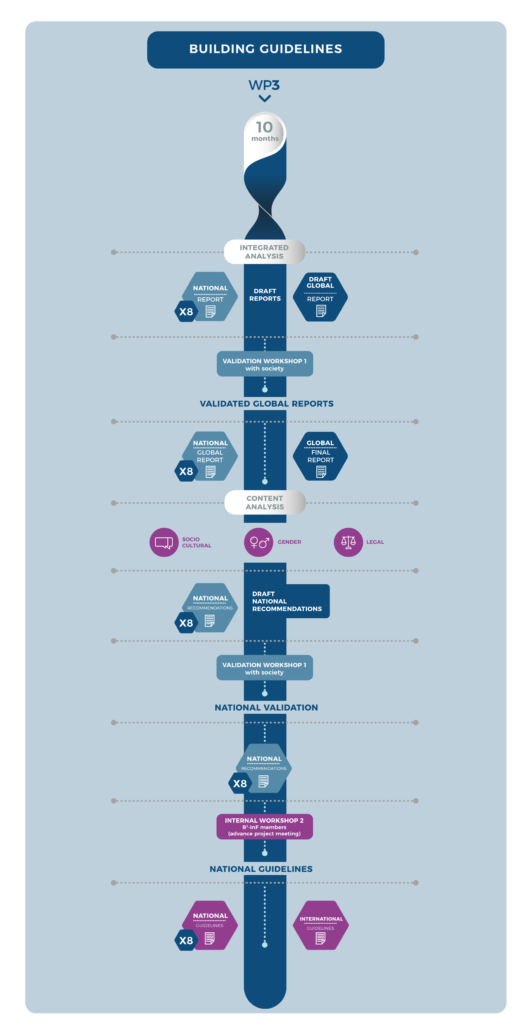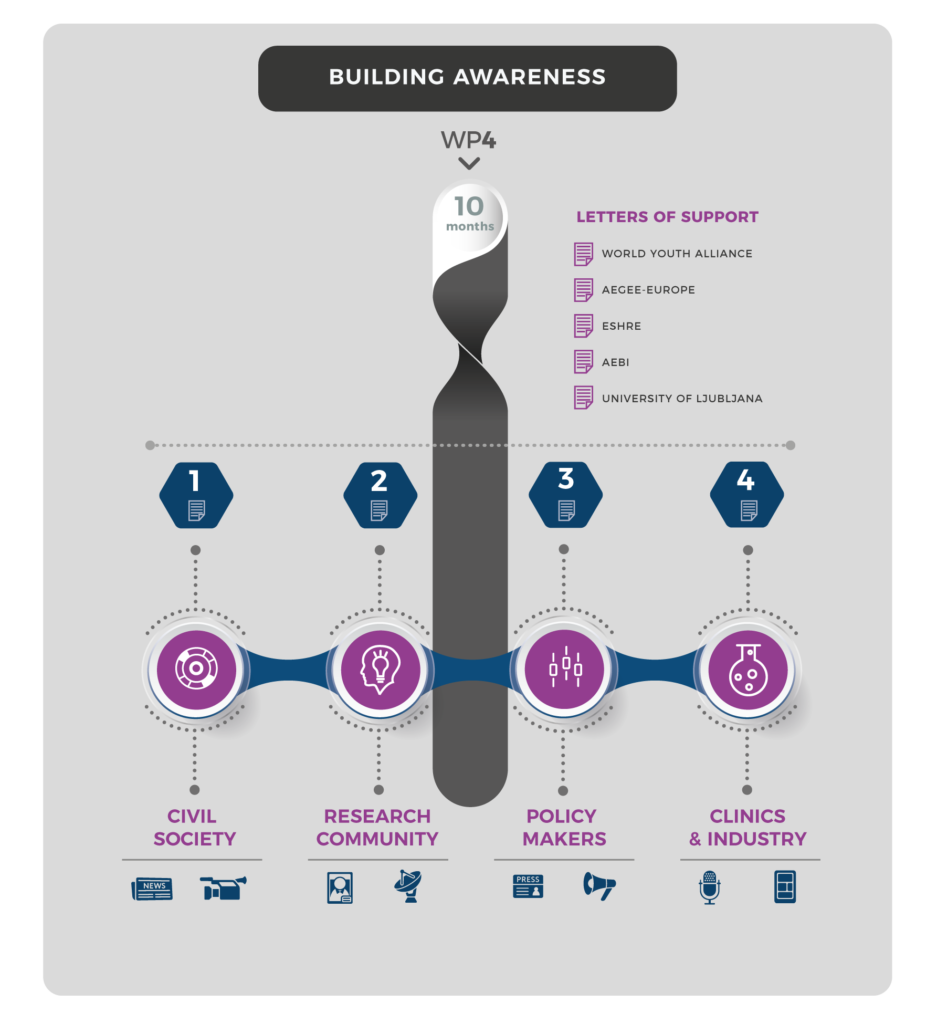The main result that the B2-InF consortium would like to achieve is the development of national and international guides with concrete and practical guidelines to significantly improve ART for the European society of tomorrow. To achieve this, the consortium will explore the perceptions of general population and study the information provided by ART clinics to society. Both pillars of research (perceptions and information) will be analysed from gender, sociocultural, and legal perspectives, in such a way that recommendation guidelines can be drawn up at national and international levels. The main idea of B2-InF is developing guidelines for art clinics to better align their research, services and information with the views, concerns and expectations of society. The project will be carried out in three stages.
In STAGE 1, the two dimensions of the project will progress in tandem. On one hand, the team will address the part of “Giving Voice to youth Society’s perceptions” by collecting information from society and, on the other hand, it will collect Information clinics regarding their current services and approach.

Regarding the Study of Perceptions of Society, 120 structured interviews will be carried out (non-patients) with citizens of 18-30-year-old, and it will use segmentation variables (age, gender, socio-educational level, religion, sexual orientation, family status…) Interviews guidelines linked to ART, including themes to be explored like perceptions, expectations and concerns; ethical, legal and gender implications; knowledge and service providers.
With respect to Collecting Clinic Information Available for Society, 30-40 ART clinics will be analyse in target countries. The principal variables for the selection of ART clinics will be the visibility.
In STAGE 2, the consortium will invest efforts to achieve the following 3 goals:
- to compare views of the general public with information provided by clinics
- to assess their alignment from gender, sociocultural, and legal perspectives
- to produce eight national guidelines that identify concrete research goals needed to make ART better aligned with the needs, expectations and values of society.

B2-InF’s gender content analysis will specifically focus on gender aspects with respect to values and opinions related to different decision, capacities and opinions related to gender gaps in ART clinics and ART users.
B2-InF will try to go beyond the basic male/female dichotomy and investigate, where possible, representations of and information about transgender and intersex populations, as they are becoming increasingly involved with ART technologies.
With respect to socio cultural analysis, the consortium will focus on observing how young people approach ART, to then evaluate how they impact the sociodemographic and sociocultural characteristics of ART knowledge, awareness, and representations. This will allow to identify expectations regarding ART among young nationals that conform to or diverge from dominant representations.
Regarding at legal analysis, one of the principal goals is to study how social perceptions conforms or diverges from reality of legal regulation in each country or at the EU level.
STAGE 3 will focus on dissemination of the finding by identifying relevant stakeholders and inform them about the final recommendation guidelines and raise awareness about this among the general public.
The project will develop a mechanism that enables systematic and responsive management of the everchanging pool of organizations, initiatives and players with a position to influence the value streams of the project. With this objective in mind, the project will implement a methodology designed for continuous development and strengthening of relationships with significant target audiences, clinics, governances and citizens.

